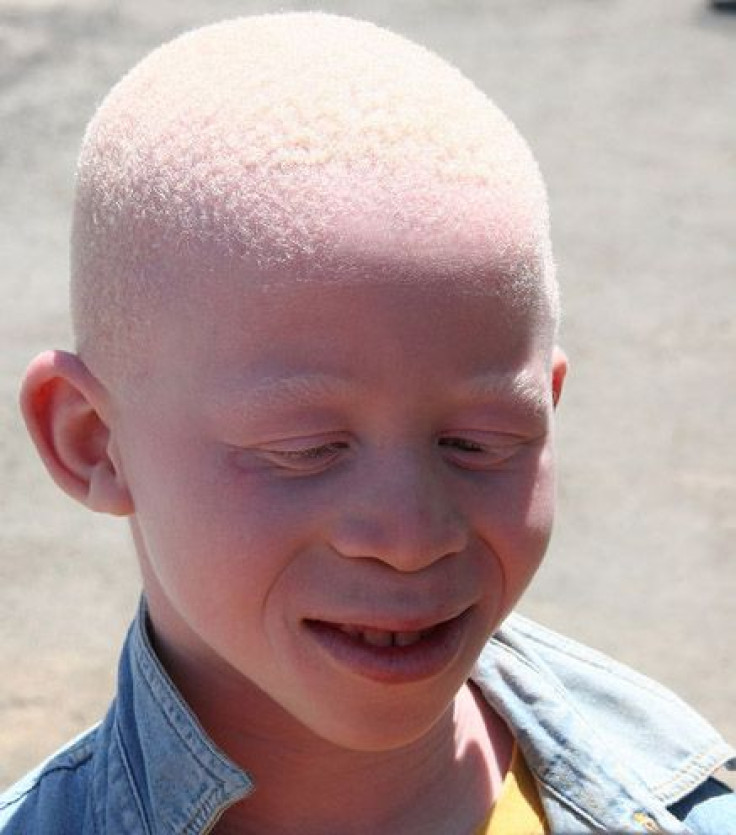Refugees: Albinos Still Under Attack In Tanzania

Near the ancestral home of humanity in eastern Africa, superstition runs high in the largely agricultural countryside of Tanzania.
Since 2006, some 100 people with albinism have been hunted down and attacked, with 71 deaths — including a nearly fatal attack led by a girl's own father, according to media reports. Witchdoctors in the country believe the body parts of people with oculocutaneous albinism — a condition characterized by a lack of melanin in hair, skin, and eyes — have magical powers when mixed together as potions.
However, the condition is also much more common in the Tanzanian population as compared to the rest of the world, with one of every 1,400 people carrying the genetic condition, as compared to a global average of one in every 20,000 people.
Aptly named, Angel Salvatory was a gift from god, her father said, with milky white skin, blonde hair, and blue eyes. "Her father thought she was a gift from God, one that he could use to get riches," Salvatory's mother, Bestida Simon, told the media. "Angel's father led a group to attack her. He had wanted to attack her since she was 3 months old. He thought if they'd take Angel to a witchdoctor as a sacrifice that they could get rich," Simon said.
Under the Same Sun, an advocacy group base in Canada, said albinos in Tanzania may now hope for more help from the central government. In April, the country's parliament voted to donate part of their salaries to help improve the plight of Tanzania's with the condition, even suggesting that sunscreen be sold tax-free. Severin Edward, a representative of the Tanzania Albino Society, said the government also promised to speed judicial prosecutions of those who harm albinos.
"This is the good point to start," Edward told reporters.
Moreover, the government intends to get a more accurate count on the rate of albinism in the country, from a census conducted last year that classified the condition as a disability. In Tanzania, people with albinism are often referred to as ghosts, or "zero zero," which in Swahili is someone who is less than human. According to superstition, many people believe that albinos never die, similar to pale-faced vampires of eastern European lore.
Thus far, the government has gone so far as to begin placing people with albinism in safe houses, leaving many to feel imprisoned by a condition that affects mostly their appearance but also in some cases vision, with the potential to devel foveal hypoplasia and possible light-induced retinal damage. Already a vulnerable target because of their skin, many albinos have vision problems that obscure their ability to see at night or far away threats.
Peter Ash, founder of the albinism advocacy group, criticized the safe houses as inhumane — a poor response to bad publicity over the killings, which reached a height in 2008. "These centers came in response to the killings. It's how the government has chosen to respond. The government has basically abandoned these kids," he said. "There is no long-term plan."
To others, the government's response is not much different than the effort to protect chimpanzees at the Tchimpounga Chimpanzee Rehabilitation Center run by the Jane Goodall Society. Helen Sekalima, a 40-year-old whose child has the condition, fled to the Kabanga Protectorate Center after locals threatened her newborn.
"The people in the village said that the children are not normal people, that they are like devils," Sekalima said.



























